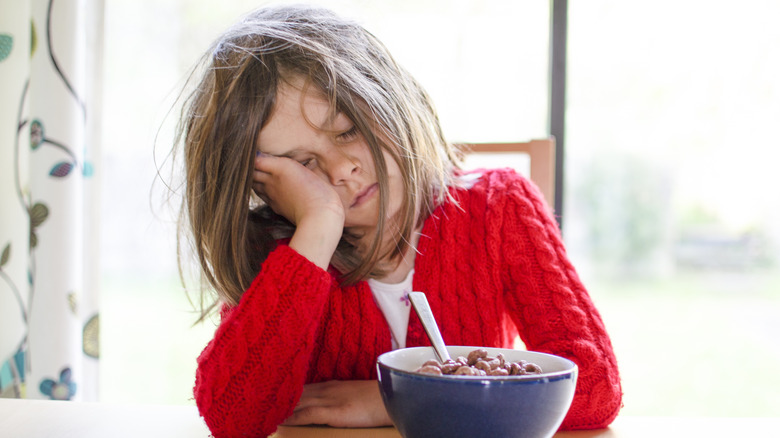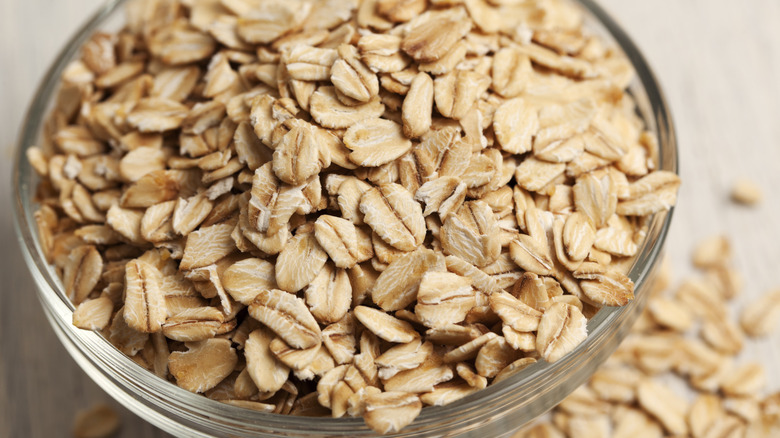Here's Why Some Foods Make You Tired
If you celebrate Thanksgiving, you are undoubtedly familiar with the fatigue that often besets those who partake in the holiday spread. Your exhausted family and friends will probably pass out in front of a football game, only to be rudely roused from their slumber by the televised crowd's celebration. You're in the mood for a nap after eating turkey because the bird contains the amino acid tryptophan, which can cause an uptick in your body's production of both serotonin and melatonin. This often leads to drowsiness.
This festive fowl is far from the only food that can make you sleepy. There's a laundry list of foods and drinks that are killing your energy, so you should be wary about what you eat before working on a task that requires your full focus. Specific chemicals like melatonin and tryptophan might contribute to your tiredness, and macronutrients like fats and carbohydrates can also make you sleepy.
The science of food fatigue
Fortunately, those prone to becoming sleepy after eating certain foods have no shortage of resources to discover what items are causing fatigue. Some of the absolute best snacks to eat before bed have noteworthy levels of melatonin and tryptophan. One food that packs a powerful melatonin punch is oats, and eggs have a considerable tryptophan content. If you're craving nuts, pistachios are full of melatonin, while both peanuts and almonds are sources of tryptophan. On the fruit front, strawberries and cranberries contain melatonin, and cherries carry both sleep-inducing chemicals.
To continue, eating fat can make you tired. Foods high in particular fats have been proven to cause daytime lethargy. Butter, cheese, and dark meat are all key contributors. All of these are high in saturated fats, which can make you tired. Excessive saturated fat consumption might give you a more restless night of sleep, causing issues throughout the following day. Additionally, though it may be the most obvious fatigue culprit in the food and drink sphere, alcohol is a depressant that literally slows your brain function, causing weariness.
Carbohydrate crash and ways to combat food-related tiredness
When you find yourself crashing after eating a big meal, it could be due to changes in your blood sugar, which indicates that you're eating too many carbs. After chowing on carbohydrate-heavy foods, your blood sugar levels can quickly increase before unceremoniously dropping down. Your body, when responding to this crash, sometimes makes you tired.
After you've noticed the foods that make you tired, there are many actions for you to take. Avoiding these foods is one step, but things like fat and carbohydrates can be difficult to steer clear of. Keeping yourself hydrated can ease your exhaustion, and limiting your dependency on caffeine can increase your energy levels. Furthermore, ensuring you're not overeating by dividing your daily sustenance into six small meals should help regulate your blood sugar.
Even if food making you tired begins to affect your life, you shouldn't skip meals. A dip in blood sugar may cause hormonal changes, and avoiding filling carbohydrates can cause mood swings. However, if you are conscious about consuming large quantities of fatiguing foods, post-meal slumps can become a thing of the past.


